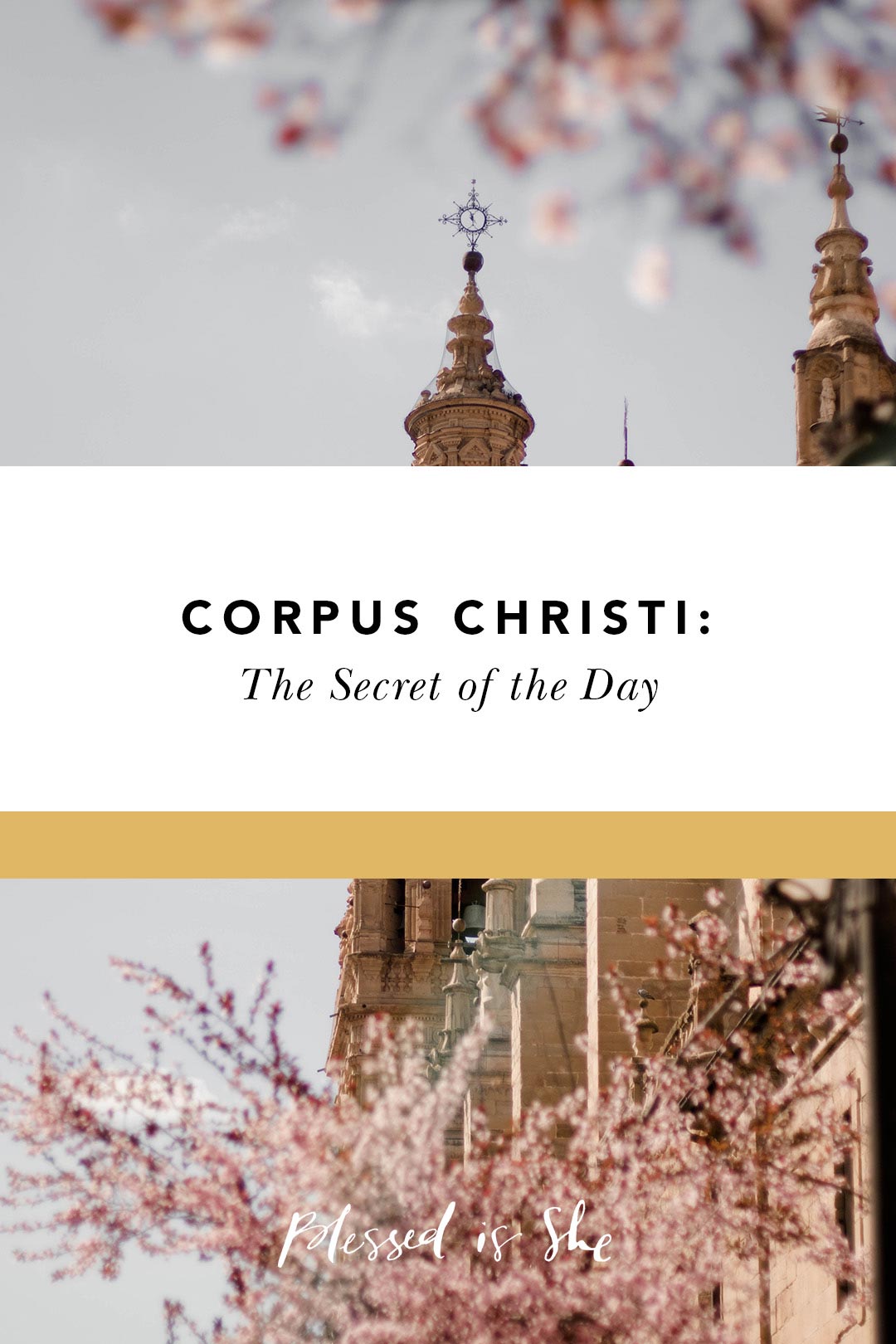
The Eucharist is the secret of my day. It gives strength and meaning to all my activities of service to the church and to the whole world. -Pope St. John Paul II
It is commonly repeated from the Catechism of the Catholic Church that “The Eucharist is ‘the source and summit of the Christian life’” (CCC 1324). With this in mind, it is no surprise that the Church celebrates the Solemnity of Corpus Christi, the Solemnity of the Most Holy Body and Blood of Christ.
The Eucharist is ‘the source and summit of the Christian life'. #BISblog //Click to tweet
The Feast of Corpus Christi
Pope Urban IV declared the Solemnity of Corpus Christi a universal feast in 1264. He requested that great Doctor of the Church, St. Thomas Aquinas, compose the liturgical texts for this feast day.
Aquinas is known for his Summa Theologiae and for showing the natural harmony between faith and reason. It was a timely request. It came during a time when many scholars debated Jesus’ true presence in the Eucharist. Aquinas on the other hand, provided the philosophy behind his definition of transubstantiation. He wrote that God extends his action “...to the whole nature of being” and that, in the Sacrament of the Eucharist:
...the whole substance of the bread is changed into the whole substance of Christ's body, and the whole substance of the wine into the whole substance of Christ's blood. Hence this is not a formal, but a substantial conversion; nor is it a kind of natural movement: but, with a name of its own, it can be called "transubstantiation". -ST III. Q75. A4.
Pope Emeritus Benedict XVI said about Aquinas, "The beautiful hymns that the liturgy of the Church sings to celebrate the mystery of the real presence of the Body and Blood of the Lord in the Eucharist are due to his faith and theological wisdom."
These hymns include texts which Aquinas wrote for the Solemnity of Corpus Christi such as Adore te Devote, as well as the Tantum Ergo, both of which are often sung during Eucharistic Adoration and Benediction.
Eucharistic Processions
In addition to the beautiful hymns that our Church sings to celebrate the Real Presence, we also have the tradition of Eucharistic processions. Processions are an ancient tradition which have taken place from the Old to the New Testament. From the Ark of the Covenant in the Old to the procession of Jesus on Palm Sunday in the New.
The Council of Trent encouraged the tradition of processions in order to emphasize the Catholic Church’s belief in the True Presence. In medieval times, whole towns and cities would participate in the procession, including nobility and military guards. As the Eucharist passed by the townspeople’s homes, they would kneel outside of their homes in reverence. This custom provides us with a great opportunity to give a public witness of our Faith. It reminds us that as we walk with Jesus before us, we are also walking with Him on our earthly pilgrimage to Heaven.
Bringing Christ Enfleshed with Us Everywhere
Benedict XI said that the tradition of the Corpus Christi procession gives us the opportunity to “immerse [Christ], so to speak, in the daily routine of our lives, so that he may walk where we walk and live where we live.”
This Solemnity, I will be evaluating how well I am immersing Christ in the daily routine of my own life. Are you aware of Jesus’ presence in your walk and in your home? If not, ask Him how He wants you to bring Him into your daily routine. Ask Him to make His presence known to you as you walk with Him each day. Remind Him that He is invited into your home.
Happy Feast of the Most Precious Body and Blood of Jesus!
Corpus Christi: The Secret of the Day #BISblog //Click to tweet

THE GREATEST GIFT
In this study on the Eucharist, we explore the truth that Jesus is the answer to your every need.
Join us as we explore John chapter 6 to learn how the reality of the Holy Eucharist applies to our lives.
Discover what a gift He is.






























